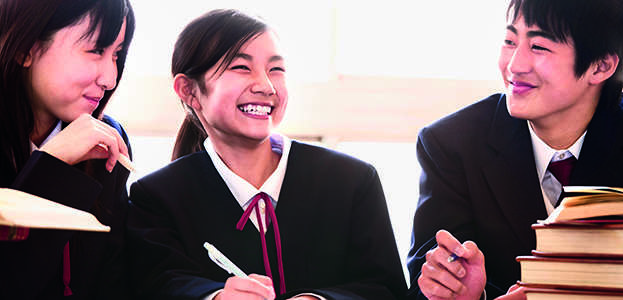About six years ago, Keiko Kawano, a radio host, found that when she stopped doing voice-articulation exercises, her smile began to fade. At one point, she struggled to lift the corners of her mouth. So Kawano, then 43, decided to learn how facial muscles work. After using the knowledge to reanimate her smile, she started helping others do the same under the motto, “More smile, more happiness.”
And as many people in Japan unmask after three years and find their facial expressions a bit rusty, she is adapting her work to the post-covid era.
“People have not been raising their cheeks under a mask or trying to smile much,” Kawano said last week, a few days after Japan downgraded Covid-19 to the same status as common illnesses. “Now, they are at a loss.” Kawano began teaching smiling at a gym in 2017 while working as a business etiquette trainer.
Despite having no medical training, her curriculum, typically taught in one-hour sessions online or in person, draws on yoga and emphasises strengthening the zygomatic muscles, which pull the corners of the mouth. She also believes the muscles just below the eyes are key and that weak ones create eyebrow-driven smiles, which can make the forehead look wrinkly. “People train their body muscles, but not their faces,” she said. After her gig at the gym, she began teaching smiling at nursing homes and corporate offices, as well as to individuals hoping that a better smile might help to land better jobs or improve marriage prospects.
Then the pandemic hit, hurting her business by hiding everyone’s smiles behind face masks. Still, Kawano was occasionally asked for advice on smiling through them. The biggest spike in demand for her services came in February, she said, when the government announced that official masking recommendations would be significantly loosened.
“People started realising that they hadn’t used their cheek or mouth muscles very much,” Kawano said. “And you can’t just suddenly start using these muscles. You need to work on them.” Yael Hanein, an expert on facial expressions, said she wasn’t aware of any academic studies documenting the effects of long-term masking on facial muscles. “A possible problem with a practiced or faked smile is that it may be identified as such by other people,” she added.
And as many people in Japan unmask after three years and find their facial expressions a bit rusty, she is adapting her work to the post-covid era.
“People have not been raising their cheeks under a mask or trying to smile much,” Kawano said last week, a few days after Japan downgraded Covid-19 to the same status as common illnesses. “Now, they are at a loss.” Kawano began teaching smiling at a gym in 2017 while working as a business etiquette trainer.
Despite having no medical training, her curriculum, typically taught in one-hour sessions online or in person, draws on yoga and emphasises strengthening the zygomatic muscles, which pull the corners of the mouth. She also believes the muscles just below the eyes are key and that weak ones create eyebrow-driven smiles, which can make the forehead look wrinkly. “People train their body muscles, but not their faces,” she said. After her gig at the gym, she began teaching smiling at nursing homes and corporate offices, as well as to individuals hoping that a better smile might help to land better jobs or improve marriage prospects.
Then the pandemic hit, hurting her business by hiding everyone’s smiles behind face masks. Still, Kawano was occasionally asked for advice on smiling through them. The biggest spike in demand for her services came in February, she said, when the government announced that official masking recommendations would be significantly loosened.
“People started realising that they hadn’t used their cheek or mouth muscles very much,” Kawano said. “And you can’t just suddenly start using these muscles. You need to work on them.” Yael Hanein, an expert on facial expressions, said she wasn’t aware of any academic studies documenting the effects of long-term masking on facial muscles. “A possible problem with a practiced or faked smile is that it may be identified as such by other people,” she added.
